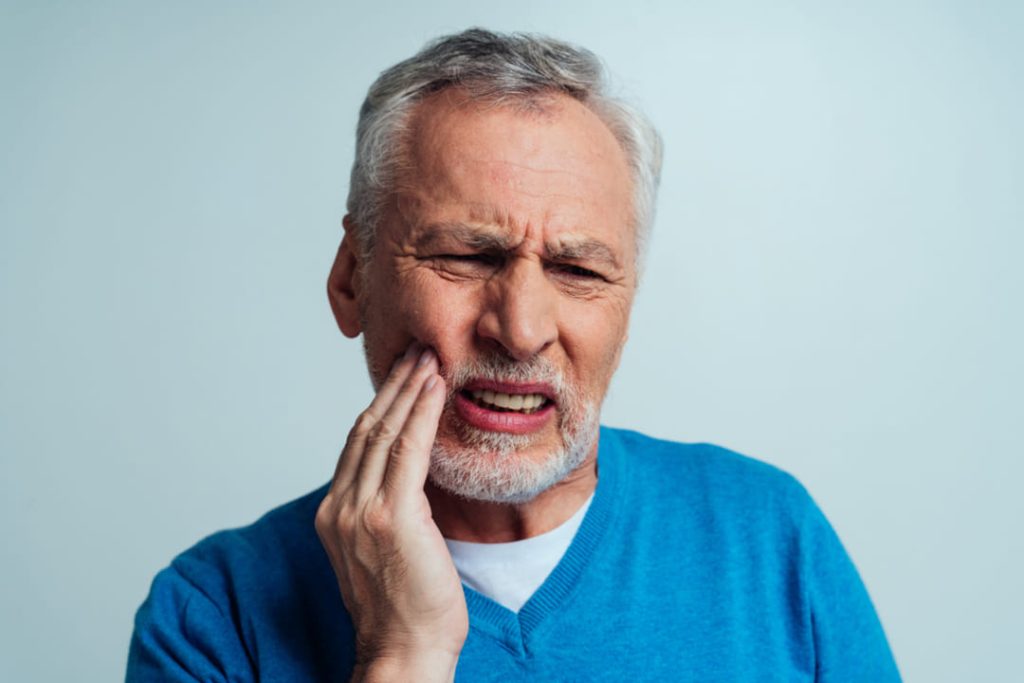VA Dental Disability Ratings
By Telemedica
9/18/2024
As a veteran, you may qualify for a VA disability rating for dental conditions, which could cover some or all of your dental care through the VA.
The good news is that if you don’t qualify for a dental VA disability rating, you may still be able to get dental insurance at a discounted rate through the VA Dental Insurance Program (VADIP).
This post will cover the various dental conditions rated by the VA, corresponding VA disability ratings, basic eligibility criteria, and more.
Main Takeaways
- VA dental disability ratings can range from 0% to 100%, depending on the specific dental or oral condition and its severity as outlined in detailed rating codes and criteria.
- To accurately diagnose dental conditions, you’ll likely undergo specific imaging studies like an x-ray, CT, or MRI.
- The VA assigns specific classes to veterans based on their eligibility, which helps determine what type of VA benefits they’ll receive.

How the VA Rates Dental Conditions
Like other ratable conditions, the VA doesn’t have one diagnostic code for dental conditions. Instead, your condition could fall under one of various VA dental disability ratings.
When determining your dental VA disability rating, you’ll likely receive one of the following diagnostic imaging studies:
- Conventional radiography (X-ray)
- Computed tomography (CT)
- Magnetic resonance imaging (MRI)
- Positron emission tomography (PET)
- Radionuclide bone scanning
- Ultrasonography
In addition, you’ll be evaluated for loss of vocal articulation, loss of smell and taste, neurological impairment, respiratory dysfunction, and other impairments under the appropriate VA diagnostic codes, with each condition rated separately and then combined for the overall evaluation.
VA Dental Disability Ratings
Dental VA disability ratings range from 0% to 100% under the § 4.150 the Schedule of ratings—dental and oral conditions, depending on the severity of symptoms and your specific condition.
The following are the VA diagnostic codes for dental conditions in veterans:
| Diagnostic Code | Symptoms | VA Disability Rating |
| 9901 | Complete loss of mandible between angles | 100% |
| 9902 | Mandible, loss of, including ramus, unilaterally or bilaterally: Rating depends on involvement with temporomandibular articulation and whether it is replaceable by a prosthesis. | 10% to 70% |
| 9904 | Malunion of mandible | 0% to 20% |
| 9905 | Temporomandibular disorder (TMD) | 10% to 50% |
| 9908 | Loss of one or both sides of the condyloid process | 30% |
| 9909 | Loss of the condyloid process, bilateral or unilateral | 10% to 20% |
| 9911 | Partial loss of hard palate | 0% to 30% |
| 9913 | Loss of teeth due to loss of mandible or maxilla without loss of continuity | 0% to 40% |
| 9914 | Loss of more than half of maxilla | 50% to 100% |
| 9915 | Loss of less than half of maxilla | 0% to 40% |
| 9916 | Malunion or nonunion of maxilla | 0% to 30% |
| 9917 | Benign neoplasm of the hard and soft tissue | 100% |
| 9918 | Malignant neoplasm of the hard and soft tissue | 100% |
Basic Eligibility for VA Dental Benefits
For eligible veterans, dental care benefits are based on several factors like military service history, current health, and living situation.
Does the VA Cover Dental? Here’s a closer look at the eligibility criteria and the type of dental care available for different classes:
- Class I: Veterans with a service-connected dental disability or condition receiving compensation qualify for any needed dental care.
- Class IIC: Former prisoners of war are eligible for any required dental care.
- Class IV: Veterans with service-connected disabilities rated 100% disabling, or those unemployable and receiving disability compensation at the 100% rate due to service-connected conditions, can access any needed dental care.
- Class II: Veterans who served during the Persian Gulf War era for 90 days or more may qualify for one-time dental care, provided they meet specific criteria, including applying within 180 days of discharge and not having received a complete dental exam and treatment before discharge.
- Class IIA: Veterans with a service-connected non compensable dental condition or a disability resulting from combat wounds or service trauma are eligible for dental care needed to maintain a functioning set of teeth.
- Class III: Those whose dental condition is linked to and exacerbating a service-connected health condition can receive dental care to treat these oral conditions.
- Class V: Active participants in a Veteran Readiness and Employment program can receive dental care necessary for program participation, goal achievement, or job adjustment.
- Class VI: Veterans needing dental care for an issue that complicates the treatment of a health condition they are receiving VA care for are eligible for relevant dental services.
- Class IIB: Participants in the Homeless Veterans Dental Program can access a one-time course of dental care for specific needs like pain relief or job assistance.
- Inpatient Status: Veterans receiving inpatient care in various care settings may qualify for dental services to manage a health condition being treated by a doctor.
Establishing Service Connection for Dental Conditions
To qualify for service-connected dental VA disability, you must prove your military service caused or aggravated your condition.
This means that your dental condition must be linked to your time in the military, either directly or as a secondary condition to another service-related injury or illness.
You can prove service connection with these key three elements:
- A current medical diagnosis of your dental condition
- An in-service event, injury, or illness that caused or aggravated your condition
- A medical nexus, or link, connecting your military service to your condition (can be a Nexus Letter)
While not required, a nexus letter frequently proves to be the missing link in VA disability claims. Our team at Telemedica can help provide you with a solid Nexus Letter.
How to File a VA Dental Claim
To apply for VA dental care benefits, you’ll need to fill out VA Form 10-10EZ online.
VA dental care is provided at over 200 dental clinics across the country, including Alaska and Puerto Rico. Click here to find a VA dental clinic near you
If you don’t qualify for VA dental benefits, you may be able to buy dental insurance at a reduced cost through the VA Dental Insurance Program (VADIP) if you meet at least one of the requirements listed below.
At least one of these must be true:
- You are signed up for VA health care (Apply now) or
- You are signed up for our Civilian Health and Medical Program (also called CHAMPVA, a health insurance program for dependents of Veterans).
Find out if you can sign up for CHAMPVA
Secondary Dental Conditions
If you don’t qualify for VA disability for dental conditions as a primary condition, you may be eligible to receive VA disability for dental secondary conditions.
Frequently, service-connected conditions lead to secondary conditions. This means your primary condition caused or aggravated an additional condition.
For example, if you have service-connected asthma, you may develop tooth loss as a result, which could lead to a VA disability rating for dental conditions.
In addition, if you have service-connected PTSD and it causes you to grind your teeth (bruxism), you may be eligible for a teeth grinding VA disability rating.

(FAQs) Frequently Asked Questions
What is the bruxism VA rating?
There is no specific bruxism VA rating; however, you may be eligible to receive a rating based on a secondary condition. Your bruxism VA disability rating will depend on the severity of your condition, including the extent of damage to your teeth.
To receive a VA rating for bruxism, you must prove your military service caused or aggravated your condition.
What is the VA disability rating for wisdom teeth removal?
There is no specific diagnostic code for wisdom teeth removal. VA disability for tooth extraction and tooth loss are rated from 0% to 40% with breaks at 10%, 20%, and 30%.
However, to be eligible for a VA disability rating, your tooth loss must be due to a service-related injury, accident, disease, or illness. In addition, tooth loss alone is not rated by the VA if you could get dentures or false teeth to fix the condition.
Can I get a VA disability rating for dental implant?
You may qualify for VA disability for dental implants, if your military service is the reason for the procedure. For example, if you have a service-connected condition that leads to tooth loss, your dental implants may be covered by the VA.
Is there a VA disability rating for receding gums?
There is no specific VA disability rating for receding gums; however, if you can prove your service-connected condition led to receding gums, you may be eligible for compensation.
For example, if you have trauma or injury to your mouth while on active duty that caused gum disease, you may qualify for a VA disability rating for receding gums.
Since gum disease is common, it’s important you have medical evidence to prove your military service led to your condition.
Conclusion
Recognizing what VA disability rating for dental conditions you’re entitled to will help you on the path to the compensation and benefits you deserve.
If you need a nexus letter to provide that missing link between your disability and an in-service event, injury, or disease, Telemedica is here as your nexus letter expert.
We can connect you with a licensed provider who understands your unique needs through our secure, private, and convenient platform. Contact us today!